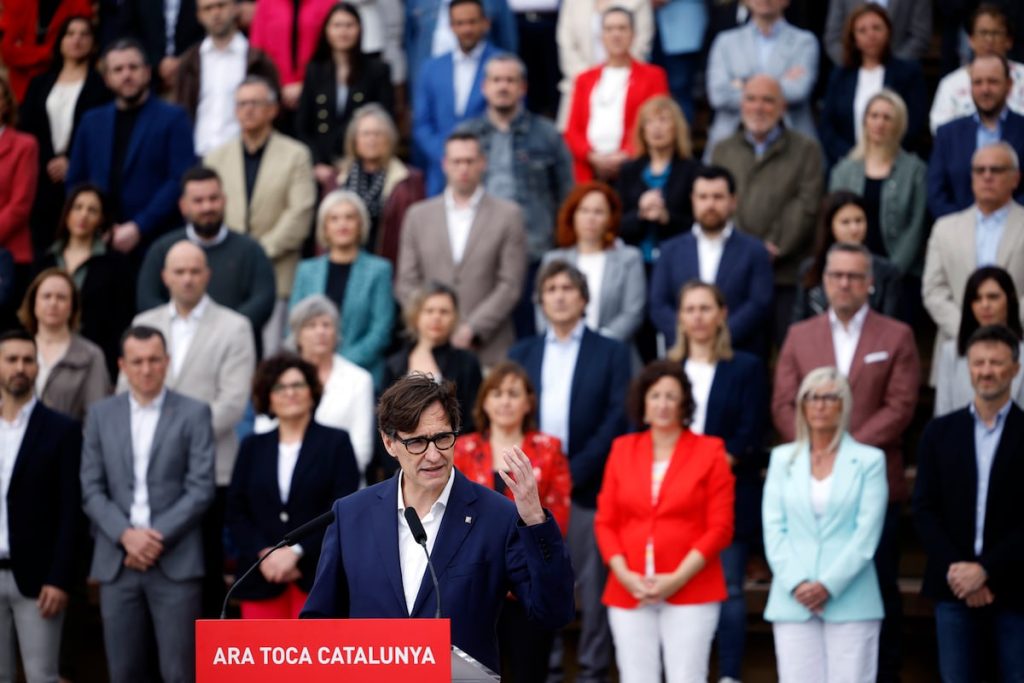The electoral barometer of the Centre d’Estudis d’Opinió (CEO), the Catalan CIS, predicts that the PSC will win the upcoming Catalan elections on May 12. The candidacy led by Salvador Illa would obtain between 40 and 47 seats, followed by ERC, which would garner between 31 and 37 seats, and then Junts, led by Carles Puigdemont, with 28 to 34 seats. The survey, conducted between April 11 and 22, interviewed 1,500 people over the phone. The CEO’s results differ from other polls such as the CIS or the one conducted by 40dB for EL PAÍS and Cadena SER, showing Pere Aragonès surpassing Junts in the race for the second spot. It seems that the main contenders are these three parties, with a tight competition for second place, followed by other parties like PP, Vox, CUP, and Comuns Sumar.
The CEO’s survey does not guarantee a majority for the pro-independence parties, as the lower end of the ranges falls short. However, the three main pro-independence parties could potentially secure a majority on their own, with a total of between 63 and 79 seats. This majority would enable them to govern without the need for a coalition. The entrance of Aliança Catalana, a new party led by the xenophobic pro-independence mayor of Ripoll, Sílvia Orriols, was also detected for the first time in the survey. Their projected results range from 0 to 2 seats. The traditional parties like Ciudadanos are predicted to fall out of the parliamentary spectrum, showing a shifting political landscape in Catalonia.
The upcoming Catalan elections are shaping up to be a close contest, with the PSC, ERC, and Junts competing for the top positions. The results of the CEO’s survey paint a different picture compared to other polls, indicating a potential shift in the political dynamics of the region. The struggle for the second spot between ERC and Junts adds an element of uncertainty to the outcome of the elections. The emergence of new parties like Aliança Catalana further complicates the political scenario, introducing new players into the mix.
The presence of fringe parties like the CUP and Vox, along with the potential impact of the traditional parties like PP and Ciudadanos, adds complexity to the electoral landscape in Catalonia. The CEO’s survey highlights the diversity of political opinions within the region, with a wide range of parties vying for support from the electorate. The upcoming elections will be closely watched as they will shape the future direction of Catalonia’s politics and governance. The challenge of forming a stable government will depend on the ability of the different parties to negotiate and cooperate in a highly fragmented political environment.















